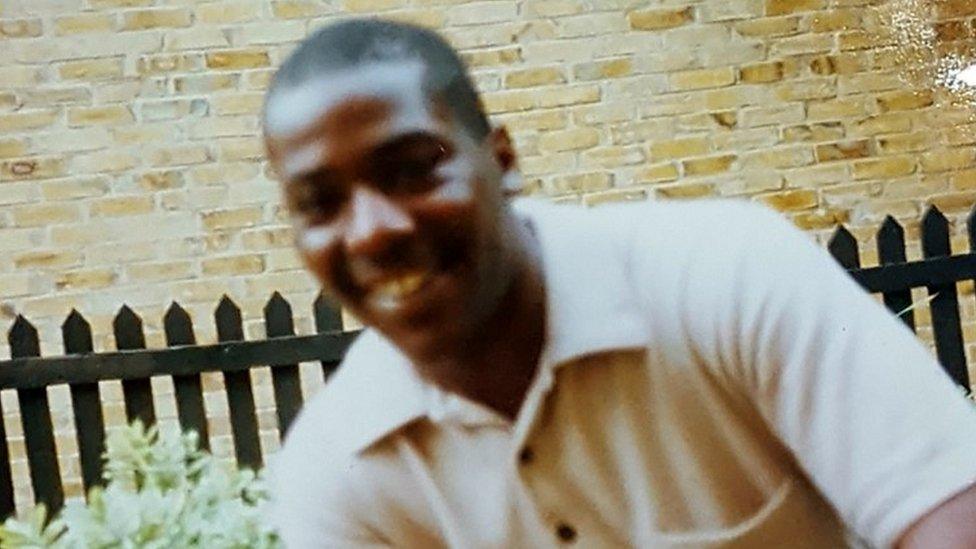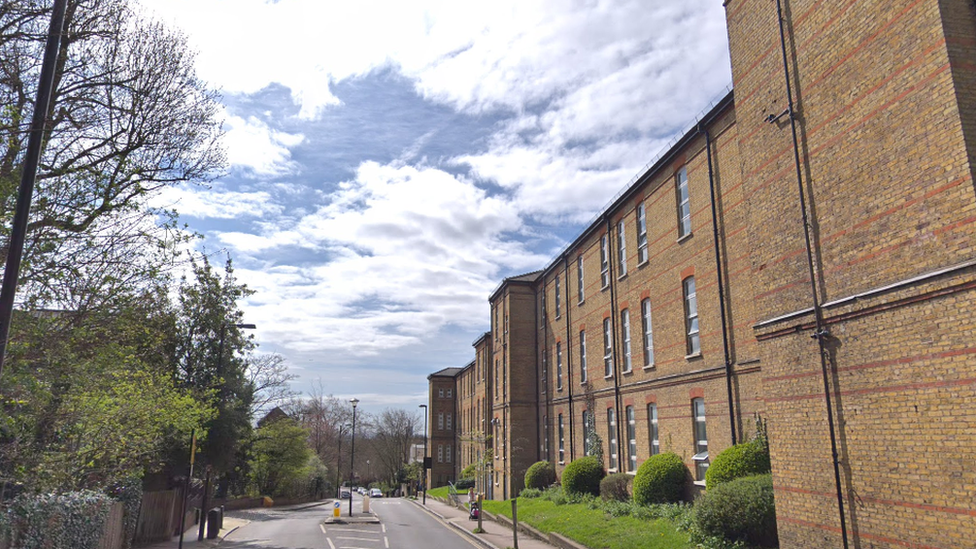Highgate mental health patient was 'badly let down'
- Published

Carl Thorpe was killed days after he arrived at Highgate Mental Health Centre
A man who was beaten, strangled and then set alight by a fellow patient at a mental health centre was "badly let down by staff", a court heard.
Carl Thorpe, 46, was discovered dead in his room at the Highgate Mental Health Centre in north London last year.
The Old Bailey heard his killer, Jordan Bramble, was supposed to have been kept under constant watch in the unit.
The jury found that the 22-year-old, who was unfit to stand trial, had carried out the attack.
The defendant is at Broadmoor Hospital and Judge John Hillen QC said he faced being detained under the Mental Health Act for an unlimited amount of time.
The jury heard Mr Thorpe suffered from schizophrenia and had been admitted to the mental health centre on 1 February last year.
He was found dead two days later after staff were alerted to smoke and flames in his room.
The court heard the 46-year-old had suffered injuries to his face and head and a "forceful prolonged compression of the neck".
"Efforts had also been made to burn parts of his body", the prosecution said.
CCTV footage from the morning of the killing showed Bramble, who has paranoid schizophrenia, pushing Mr Thorpe into the room and following him inside.
The 22-year-old later confessed to the killing saying he did not like Mr Thorpe because he was gay.

Jordan Bramble was supposed to have been kept under constant watch in the unit
Bramble had spent three years in mental health units from 2014 to August 2018 and during that time had broken the nose of a staff member and punched a sleeping patient, the court heard.
Prosecutor Julian Evans said a member of the unit's nursing team was supposed to have had him in sight at all times, but "that level of observation simply did not happen".
He added that Mr Thorpe was a "vulnerable" man who had been "very badly let down".
Camden and Islington NHS Foundation Trust told the BBC a "comprehensive disciplinary investigation" had been carried out following the death, "which resulted in two nurses and two healthcare assistants being dismissed".
"This was an isolated incident of completely unacceptable failures in professional practice and conduct and we are deeply sorry that we did not provide a safe and protective environment to these vulnerable patients in our care," they said.
- Published18 November 2020
